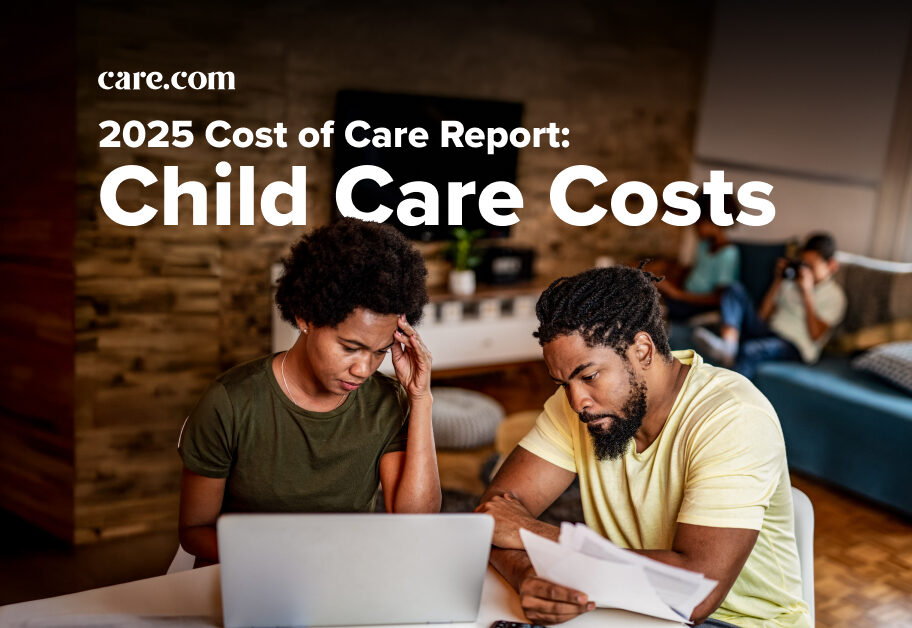From the moment a little one makes his or her appearance, new moms field a lot of questions. We’re cross-examined by our family, friends, the pediatrician, even people we don’t know. At least once a week, I’ll be sitting in a coffee shop or some other public space with my toddler, minding my own business, and a well-meaning stranger will try to engage me in conversation about motherhood. Most of the time, I don’t mind — being a stay-at-home mom can get pretty lonely. But too often the queries we field as mothers are perplexing, obtrusive or downright rude.
“We moms are just as guilty of asking one another the wrong questions,” says Rebekah Rosler, a mom of three, doula and co-founder of Mom MeetUps in New York City.
Through Mom MeetUps and as the facilitator of fertility support groups, Rosler has connected with thousands of mothers to support them on their journey.
In the the case of new mothers, she says, “You’re speaking with someone whose identity changed overnight, someone who hasn’t slept and whose hormones are going crazy.”
The burdensome expectations we lay on mothers further inhibit us.
“Asking a new mom any question during the early days of motherhood that focuses on the presumptions of what motherhood ‘should be’ or ‘should look like’ can be painful,” Rosler says.
Below are six of the most baffling, shame-based and straight up rage-inducing questions we often hear as new moms, followed by what Rosler suggests loved ones could say instead.
1. Are you breastfeeding?
In a culture that largely believes “breast is best,” asking a new mom if she’s breastfeeding can trigger major insecurities.
New York City mom of three Julie Schwietert Collazo didn’t breastfeed any of her kids.
“I couldn’t,” she says. “I never produced enough milk. I tried all the interventions and remedies, took all the advice… and nothing.”
Collazo found it “extremely annoying and frustrating to constantly be asked this question — because the next question was inevitably, “Why not?” she says, followed by more useless advice.
“How or what you feed your child is nobody’s business,” Rosler says.
WHAT TO SAY INSTEAD: I’m going to make you some coffee, OK?
“That’s even better than asking, ‘How can I help you?’” Rosler says. “Because new moms don’t always know the answer. Offer something specific they probably don’t even know they want or need.”
2. Is the baby sleeping through the night?
Questions about a child’s sleeping habits can make an exhausted parent feel as if they’re not doing it right.
Ariel Whitehead, a mom from Richmond, Virginia, says she doesn’t believe all of her friend’s children are sleeping through the night, as they claim.
“Otherwise, these same moms would not be asking me for advice on under-eye circle cover-ups!” she says.
WHAT TO SAY INSTEAD: Can I watch the baby while you rest or take a bath?
The mom, then, can take you up on it or decline the offer, Rosler says.
3. When are you going back to work?
Some moms are eager to return to their former occupation, while others are reticent. For a stay-at-home mom like myself, a question about when I’m returning to work suggests what I do as a full-time caregiver is not valuable.
Ann Davies, a mom from Jersey City, New Jersey, says this question was horrible for her.
“I didn’t have a job to go back to,” she says. “My job had been a contract position that had ended the week I gave birth. I also hated this assumption that I must be ‘so lucky’ to spend more time with my daughter. Yes, I was, but I was also super stressed about money.”
WHAT TO SAY INSTEAD: How does it feel to be home with the baby?
People often feel overwhelmed when they think about the future, particularly new mothers. Instead of pressing a mom about her plans, Rosler advises to keep it in the moment.
4. Does your husband help?
Caring for an infant is an all-in effort. There’s not always a partner, Rosler reminds us, but if there is, “they shouldn’t be ‘helping’; it’s as much that other person’s job to care for the child as it is mom’s,” she says.
Ciarra Luster Johnson, of Tampa, Florida, says she hated being told how “lucky” she was because her husband is helpful.
“A) Not lucky; I picked him,” Luster Johnson says. “B) It’s not being helpful, it’s parenting! Just like me! No one ever tells him that he’s lucky to have me!”
WHAT TO SAY INSTEAD: How are things going?
The best questions, Rosler says, are general and open-ended.
“People will share if they want to but not feel pressured,” she says.
5. What do you do all day?
Katrina Ann, of Olympia, Washington, says that when visiting the office with her baby while on maternity leave, her coworkers asked what she had been doing with her time off.
“Oh, you know, catching up with the girls, margaritas on the beach!” Ann says she answered, sarcastically.
It’s not just your coworkers who will accuse you of being on vacation. Rosler says new moms often put the pressure on themselves, erroneously thinking of maternity leave as a time to get things done.
“We should be focused on bonding with our baby and taking care of ourselves,” Rosler says.
WHAT TO SAY INSTEAD: If and when you’re up for having visitors, I’d love to see you and meet your baby!
Put it out there, in case mom feels isolated.
“You’ll get the invitation when she’s ready,” Rosler says.
6. Are you going to have more kids?
As a mom of fertility treatment babies, Rosler finds questions about siblings particularly triggering.
“Many of us struggled hard [to conceive],” she says.
And some parents are perfectly happy with one. Tara Laskowski, a mom from Fairfax, Virginia, concurs.
“You never know if the couple is trying to have another baby and cannot,” she says. “The follow-up comment about how only children are lonely is also really irritating!”
WHAT TO SAY INSTEAD: How are you?
“Really, this is the most important question,” Rosler says. “We ask how the baby is doing, we ask if dad’s helping out, but no one is asking about mom.”
The bottom line
Invite new moms to share their experience, but don’t be pushy.
Rosler says that while some moms will be open and honest from the beginning, others may be reticent due to societal expectations or for fear of being judged. Being supportive is less about asking questions and more about listening.
Create space for new moms to talk, Rosler says, “and if they don’t want to talk, sitting together in silence is alright, too.”






